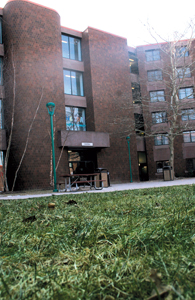
The latest casualty of changes to the Binghamton University Discovery Program are learning communities, which are being suspended for the fall 2009 semester.
The learning community program, in existence since 1997, allows freshmen students to take some of their classes with other students who live in their residence halls. The students would have the normal lectures with professors, but would then have the discussion sections in the residence halls, along with other themed programs.
The learning community instructors hold office and tutoring hours in Lecture Hall for the students in their sections, and also work with resident assistants to develop out-of-class programs.
“They provide a rich learning experience, and Discovery was responsible for training [teaching assistants] and for choosing students to enroll,” said Steve Duarte, the Discovery Program’s learning specialist. “The learning communities promote the collaboration between the residential and academic aspects of student life.”
The Discovery program is also in charge of the discovery assistants and offers free tutoring for students.
Due to budget cuts, however, the learning communities will no longer be part of the Discovery Program’s agenda. Instead, each residential community’s faculty master will be continuing the learning community program in their own way.
“We are expecting sections of Writing 111 to be in the communities, as well as specific courses depending on the residential community,” said Anthony Preus, the faculty master of College-in-the-Woods.
CIW will have learning communities with an emphasis on law, while Hinman College will have service and leadership programs and Dickinson Community will have a course taught in geology by Professor Jeffrey Barker, that community’s faculty master.
“Newing is too chaotic with the construction going on, and the expectation is that the engineering learning communities will start up again in Mountainview [College] in fall 2010,” Preus said.
According to Preus, there will not be the same coordination of curriculum as there was under the Discovery Program. He said, however, that he is optimistic about the program.
“The faculty masters are trying hard to organize a broad spectrum of living/learning possibilities,” Preus said.
According to Duarte, the learning communities’ costs came from giving TAs stipends for weekly training sessions, amounting to around $3,000 to $5,000 for fall ‘09.
“The Provost decided the best thing to do would be to suspend the program under Discovery,” Duarte said. “We’re hoping in the longer run, it will be back; there’s a ton of data showing that this really helps students.”


